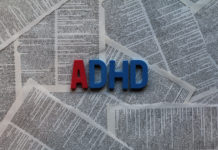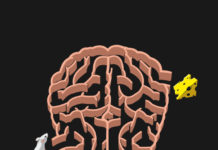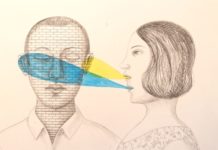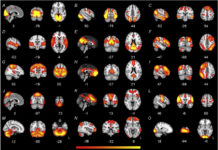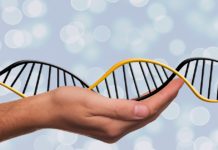Mobile Apps for Mental Health Lack Transparency in Data Sharing
Research illustrates privacy concerns with how mental health applications collect and share users’ data.
Fighting for the Meaning of Madness: An Interview with Dr. John Read
Akansha Vaswani interviews Dr. John Read about the influences on his work and his research on madness, psychosis, and the mental health industry.
Exposure to Antidepressants in the Womb Linked to Autistic Behavior in Mice
Researchers experimenting on mice found that exposure to fluoxetine (Prozac) in utero resulted in behaviors considered in animal studies to be analogous to autism in humans.
Service-Users See Long-Term Antipsychotic Use as Compromising Recovery, Review Finds
A new meta-review examines the experiences of antipsychotic drugs use among people diagnosed with a psychotic disorder.
Study Reveals Inconsistency in ADHD Diagnostic Determinations
Researchers compare differences between research and clinical diagnoses of ADHD and explore the consistency of clinical determinations over time
Researchers Find Bias in Industry-Funded Continuing Medical Education
Industry-funded continuing medical education (CME) influences physicians to prescribe more opioids, focus less on the consequences.
Sodium Nitroprusside Shows No Efficacy in Schizophrenia Treatment
Researchers question biases of preliminary trials that found that sodium nitroprusside, an antihypertensive drug, has positive effects on schizophrenia symptoms.
The Role of Racial Bias in the Overdiagnosis of Schizophrenia
Researchers detect disparity between white and African American patients diagnosed with schizophrenia when symptoms of a mood disorder are present.
Researchers Fail to Replicate Evidence for “Biotypes” of Depression
A new study casts doubt on whether such biotypes for depression exist.
Valuing Posttraumatic Growth in Psychosis
Individuals who experience psychosis can also experience posttraumatic growth, which can be a central component of the recovery paradigm.
More Physical Activity-Based Mental Health Interventions Needed in Schools
What physical activity-based programs are being implemented in schools, how are they being researched, and what kind of impact have they made?
Struggling Parents, Burdened Social Services: What We Can Change
Parents encounter many obstacles when trying to secure adequate educational, medical, psychological, and social supports for their children. These “dense bureaucracies” hurt not just families, but everyone.
Psychiatrists View Drug-Free Programs for Psychosis as “Unscientific,” Study Finds
A new study provides an insider’s look into how psychiatrists view the establishment of drug-free programs in Norway.
Higher Minimum Wage May Result in Fewer Suicide Deaths, Study Finds
New research suggests that minimum wage laws provide financial security that may help prevent suicide.
The Effects of Antidepressant Exposure Across Generations: An Interview with Dr. Vance Trudeau
Dr. Vance Trudeau discusses his study's finding that antidepressants may have far-reaching, adverse effects that last up to three generations.
No Brain Connectivity Differences Between Autism, ADHD, and “Typical Development”
Neuroscience researchers find no differences in brain connectivity between children with diagnoses of autism, ADHD, and those with no diagnoses.
A Faux Test for a Faux Disease Promoted by Real Psychiatrists
Influential psychiatrists recently called on the NHS to make a faux schizophrenia test available to patients and their families. What is most astounding about this is the complete lack of pretense. "We are so certain of our power and righteousness that we are going to tell you to your face that we are lying, and yet, we will still get our way."
When Does it Help to Have Background Information in Child-Centered Play Therapy?
Knowing the client’s history can help foster genuine empathic responding, a key component to child-centered play therapy.
Adderall Use Associated with Increased Risk of Psychosis
Twice as many teenagers with ADHD experienced severe psychosis when taking Adderall, as compared to Ritalin, according to a new study.
Green Space in Childhood May Protect Against Adult Mental Health Issues
A new study suggests proximity to green space as a child is linked to lower rates of mental health issues in adulthood.
Peer-Support Groups Were Right, Guidelines Were Wrong: Dr. Mark Horowitz on Tapering Off Antidepressants
In an interview with MIA, Dr. Horowitz discusses his recent article on why tapering off antidepressants can take months or even years.
Increasing Prevalence of Mood Disorders Among Teens and Young Adults
Depression, serious psychological distress, and suicide attempts have risen substantially since the early 2000s among young adults – what’s changed?
It is Time to Abandon the Candidate-Gene Approach to Depression
The candidate-gene approach to depression goes unsupported and is likely based on bad science, new research finds.
The Role of Context, Language, and Meaning in Hearing Voices
Sociocultural context, language, and sense-making process are among concepts that can help hearers and providers better understand the phenomenon of hearing voices
First-Person Accounts of Madness and Global Mental Health: An Interview with Dr. Gail Hornstein
Dr. Gail Hornstein, author of Agnes’s Jacket: A Psychologist’s Search for the Meanings of Madness, discusses the importance of personal narratives and service-user activism in the context of the global mental health movement.





